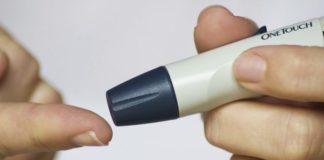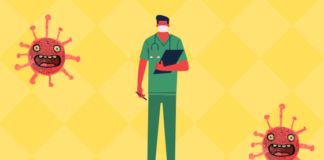What ‘re-opening’ means for Kidney Patients and what they should expect.
Written By: James Myers
These statements have not been evaluated by the Food and Drug Administration. This article is not intended to diagnose, treat, cure,...
Preventing Vision Loss If you have Diabetes: What you should know?
More than 37 million people in the United States have diabetes, and 1 out of 3 of them will develop diabetic retinopathy, the leading cause of severe vision loss and blindness among working-age American adults.
Stress and the Gut Microbiome
The views expressed here are those of the author and not necessarily those of The Hope or its sponsor Kibow BiotechⓇ. Always consult with...
The Importance of The Heart-Kidney Connection: What you should know?
If you have or are at risks for heart or kidney disease, it’s important for you to understand the connection between the heart and the kidney. Many people do not realize the importance of this connection. Let’s take a look at how the kidneys and heart work together.
What You Need to Know About Religious Fasting: But, what happens...
The views expressed here are those of the author and not necessarily those of The Hope or Kibow Biotech
Fasting and Kidney Illness
Fasting is...
THE FLU AND YOUR KIDNEYS
Every year you see the commercials and flyers reminding you to get your flu shot. If they serve their purpose and you get your...
3 BLOOD TESTS YOU SHOULD GET IF YOU HAVE DIABETES
Written by Guest Blogger: Jenny Hart
This article is not intended to diagnose or treat any illness or condition. The views expressed here are those...
HOW TO DEAL WITH ANXIETY WHILE HAVING CKD
With kidney disease, There are always things to be done or situations we can’t avoid and somehow a “friend” called anxiety always tags along....
Quiz: Is Your Gut Healthy
*These statements have not been evaluated by the US Food and Drug Administration. This information is not intended to diagnose, treat, cure, or to...
Covid- 19 and Kidney Disease: Why it’s different than the flu...
Written By: Amanda Grandinetti
The views expressed here are not necessarily those of ‘The Hope’ or its sponsor Kibow BiotechⓇ, nor should it be viewed as...










